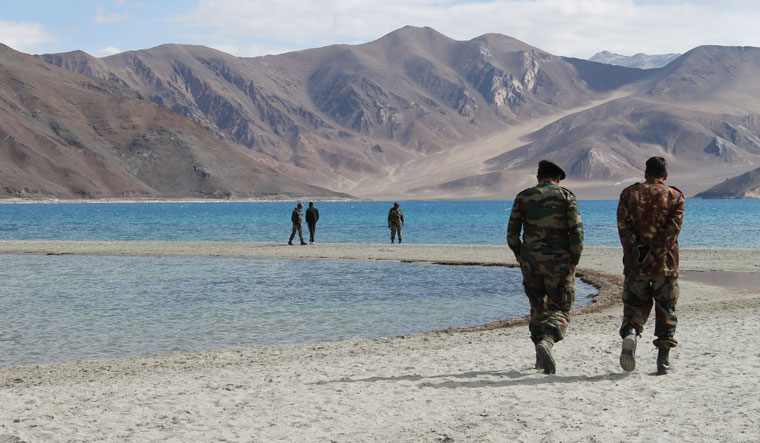China rotates 90 per cent troops deployed along Ladakh sector on India border
It seems that Chinese troops deployed opposite the Eastern Ladakh sector have been badly affected by the extreme cold conditions in the area as the People's Liberation Army has rotated 90 per cent of its manpower and brought in fresh soldiers from the hinterland.

New Delhi: It seems that Chinese troops deployed opposite the Eastern Ladakh sector have been badly affected by the extreme cold conditions in the area as the People's Liberation Army has rotated 90 per cent of its manpower and brought in fresh soldiers from the hinterland.
Since the April-May timeframe last year, China has deployed over 50,000 troops close to the Indian territory in eastern Ladakh and has been maintaining them there despite the limited troops withdrawal from forward locations in the Pangong lake sector.
"The Chinese have brought in fresh troops from the hinterland to replace the troops who had been there for the last one year. Around 90 per cent of their troops have been rotated," sources told ANI.
The reason for this rotation may be that the Chinese troops deployed in the extreme conditions in the high latitude areas have been severely affected by the extreme conditions faced in high latitude, extreme cold and other related issues, they said.
Even during the the deployment in friction points in Pangong lake area, Chinese troops were getting rotated on almost daily basis at high altitude posts and their movement had become very restricted, the sources said.
The Indian Army deploys its troops in the high altitude areas for a two year tenure and around 40-50 per cent troops get rotated every year. The tenures of ITBP soldiers in these conditions are sometimes much longer than two years.
India and China have been deployed against each other in a big way in eastern Ladakh and other areas along the Line of Actual Control since April-May timeframe last year and have indulged in several face offs caused by the Chinese aggression there.
After the initial Chinese aggression, the Indian side also retaliated strongly and ensured that they are kept in check at all the places. After that, India surprised the CHinese forces by occupying the strategic heights at the southern bank of the lake from where they were dominating the Chinese deployment there.
Both sides agreed to vacate their respective positions in the Pangong lake area and stop patrolling there earlier this year. However, the troops withdrawn from these locations have remained within close proximity from both sides and forward deployments from both sides are still continuing there.
From the beginning of the summer this the year, the Chinese troopps have returned to the training areas from where they diverted towards Indian front last year. The Indian side is keeping a close eye on the situation.
Indian Army Chief Gen Manoj Mukund Naravane has ben frequently visiting the Ladakh sector and directing the formations on ground to tackle the situation. The China Study Group including National Security Advisor Ajit Doval has also been giving suggestions on handling the situation and also the directions and stands to be taken during the talks with the Chinese. (ANI)
 Dynamite News
Dynamite News